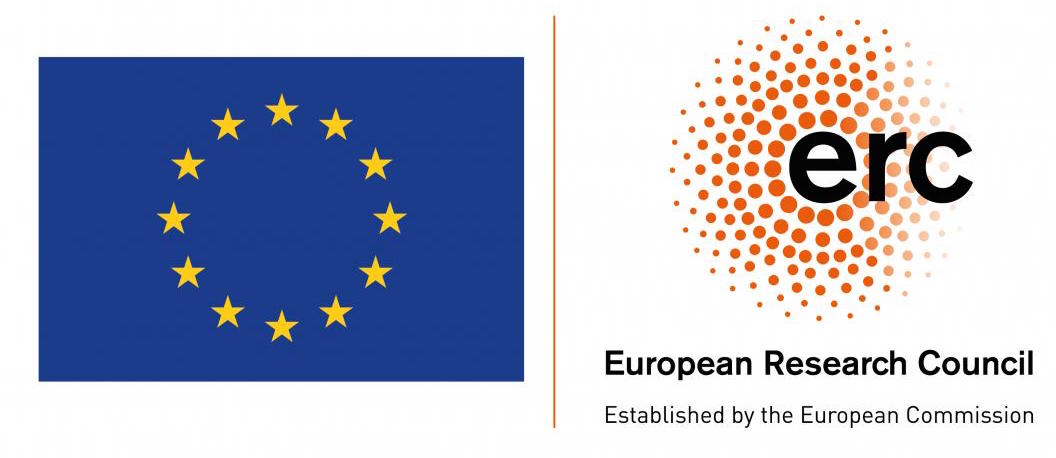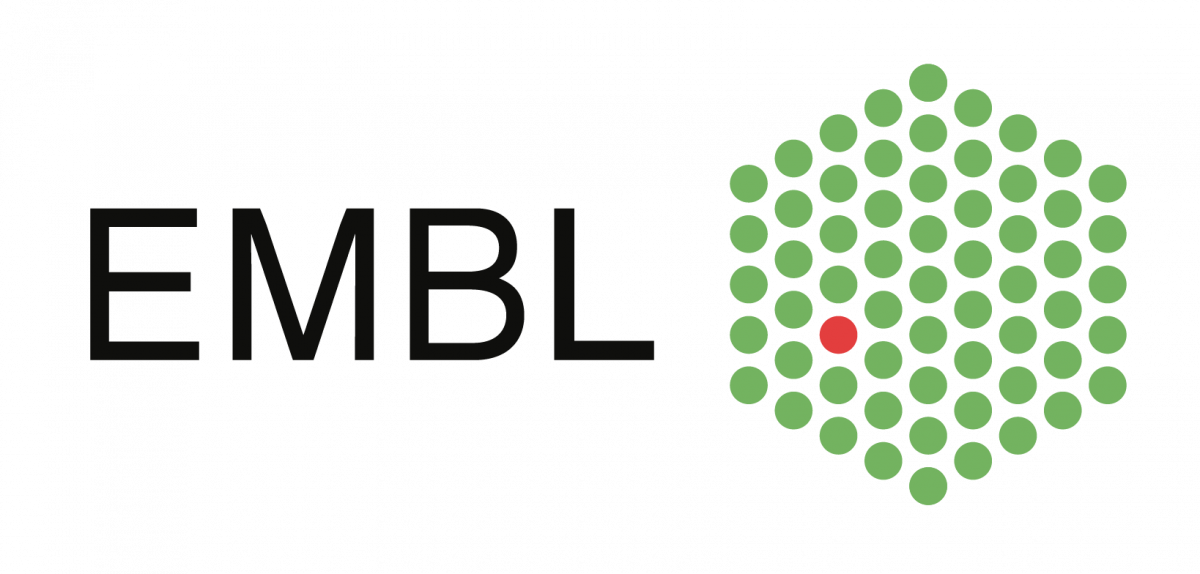 Velten Lab
Velten Lab
 Computational Biology and Health Genomics
Computational Biology and Health Genomics
- Group page
- Research lines
- Group members
- Publications
- Datasets
- Software
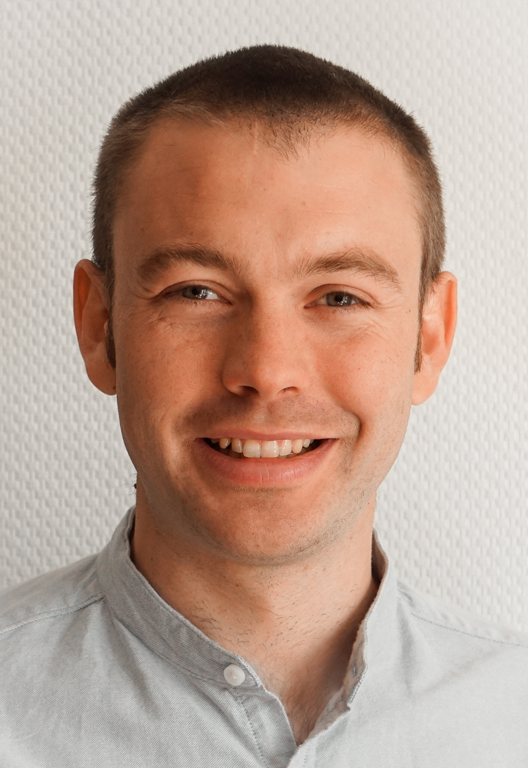
Velten Lab

2020-Today Group Leader at the Centre for Genomic Regulation (CRG), Barcelona, Spain
2016-2019 Research Staff Scientist, European Molecular Biology Laboratory, Heidelberg (Germany)
2012-2016 Ph.D. in Genomics, European Molecular Biology Laboratory, Heidelberg (Germany)
2012 M.Sc. in Cancer Biology, German Cancer Research Center, Heidelberg (Germany)
Summary
The Velten lab uses single-cell and synthetic genomics, high-throughput genetic screens and artificial intelligence to study the genomic regulation of differentiation programs in hematopoietic and leukemic stem cells.
The hematopoietic system supplies our bodies with a trillion new blood cells per day, and constitutes one of the most sophisticated regenerative systems in biology. Evidently, the ability to create this massive number of cells puts the system at high risk of accumulating mutations. In the blood forming system, this risk is mitigated by the existence of mostly non-dividing long-term stem cells. The key questions that drive our work are first, how is the lineage differentiation and activation of blood stem cells regulated? And second, how are the blood stem cell identities altered in leukemia?
To answer these questions, we develop and apply cutting edge genomic and bioinformatic methods. We have pioneered the application of single-cell genomics to characterize the blood forming system. Thereby, we have redefined the cellular routes of differentiation in human hematopoiesis (Velten et al., 2017), and we have compiled the most comprehensive maps of adult bone marrow hematopoietic (Triana et al., 2021) and mesenchymal (Baccin et al., 2020) cells available. Our current work in the single-cell genomics space is focused on aberrations encountered in leukemia (Velten et al., 2021).
An emerging technology to study gene regulation is synthetic genomics. Increased abilities to synthesize DNA enable massively parallel functional genomics experiments. Building on past work on CRSIPR screens in single cells (Schraivogel et al., 2020), we are now working on controlling gene expression in blood stem cells by synthetic DNA at various levels. Our long-term vision is to enable a predictive understanding of gene regulation in the blood forming system.
News
Differentiation landscape of acute myeloid leukemia charted with new tool (24/04/2023)
Researchers have developed a new method to distinguish between cancerous and healthy stem cells and progenitor cells from samples of patients with acute myeloid leukaemia (AML), a disease driven by malignant blood stem cells that have historically been difficult to identify.
CRG researchers selected for EMBO Young Investigator programme (22/11/2022)
CRG researchers Lars Velten and Arnau Sebe Pedros are two of 24 life scientists to be selected for this year’s EMBO Young Investigator Programme.
Researchers at the CRG receive €4.5m to study cancer, reproduction and blood formation (01/01/2022)
Lars Velten, Group Leader at the CRG, will combine deep learning and single-cell screening techniques to create new models of gene regulation in the human blood-forming system.
Cell atlas of human blood formation paves way for improved diagnostics (29/11/2021)
Researchers at the Centre for Genomic Regulation (CRG) in Barcelona, EMBL Heidelberg, the German Cancer Research Center and the Berlin Institute of Health have created the most detailed atlas of gene expression of human blood and bone marrow cells to date.
Single cell sequencing opens new avenues for eradicating leukemia at its source (01/03/2021).
We have published our method to identify and characterize leukemic stem cells by single cell genomics.
€2.45 m to investigate leukaemia causes and therapies (11/03/2020).
Together with partners from the University Clinics Heidelberg and the Max Delbrück Center for Molecular Medicine (Berlin), we form part of the LeukoSyStem consortium that was awarded with a prestigious junior research alliance grant by the German government.
Job Openings
We are very interested in applications of prospective postdocs and PhD students with an interest in hematopoietic stem cell biology, gene regulation, single cell genomics, single cell genetic screens and/or machine learning.
Funding acknowledgements

The project "Single cell genomics for synthetic biology of gene regulatory element" (PID2019-108082GA-I00 / AEI / 10.13039/501100011033) has received funding from the National Research Agency (Agencia Estatal de Investigación, AEI), from the Spanish Ministry of Science and Innovation.

This project "Artificial intelligence for synthetic funtional genomics of blood- AI4SYN_101041399" has received funding from the European Union’s Horizon EIC-ESMEA Pathfinder program under grant agreement No 101046620.

The project 'Nuevos enfoques para combatir la hematopoyesis clonal, una etapa temprana en el desarrollo de la leucemia mieloide aguda' has received funding from the Asociación Española contra el Cáncer, under the call 'Ayuda LAB AECC 2022'
Period: 01/12/2022 to 30/11/2025
Single cell and synthetic genomics of gene regulation
During cellular development and differentiation, genetic information needs to be activated in a precise and highly controlled manner. The activation and differentiation of hematopoietic stem cells is a prime example of a complex differentiation process. In our project “Artificial Intelligence for Synthetic Genomics of Blood (AI4SYN), funded by the European Research Council, we combine genetic screens, single cell genomics technology and deep learning to understand how genomes encode complex differentiation programs. Our goal is to become able to program gene expression during cellular differentiation.
Single-cell multi-omics of leukemic and healthy stem cells
Acute Myeloid Leukemia (AML) develops through sequential genetic lesions in hematopoietic stem cells (HSCs). For example, preleukemic HSCs (pHSCs) already carry mutations present in AML (e.g., DNMT3A or TET2), but retain their ability to differentiate into healthy blood cells. The acquisition of additional mutations in these cells eventually leads to AML with chemo-resistant leukemia stem cells (LSCs) at the top of a cellular hierarchy. Targeted therapies of LSCs to improve the clinical outcomes of AML patients is an area of active research, but a major challenge remains: LSCs, preleukemic HSCs, healthy HSCs, and leukemia cells lacking stem cell properties (called blasts) are difficult to separate using conventional methods. Only combined genome and transcriptome analyses of individual cells have the potential to clearly distinguish between healthy blood stem cells, pre-leukemic cells and leukemia cells with and without stem cell properties. Together with Dr. Simon Raffel (University Clinics Heidelberg) we are generating such single-cell multi-omics datasets to systematically identify LSC-specific markers, biological processes, and potential therapeutic targets.
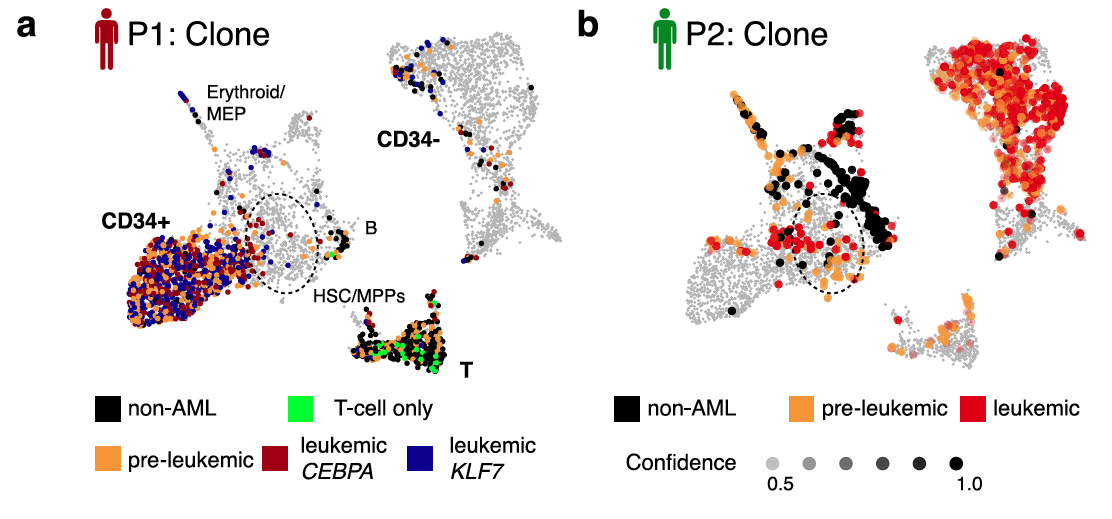
We have combined single cell transcriptomics with clonal tracking to identify leukemic, pre-leukemic and residual healthy hematopoietic stem cells. Reference: Velten et al., Nature Communication 2021
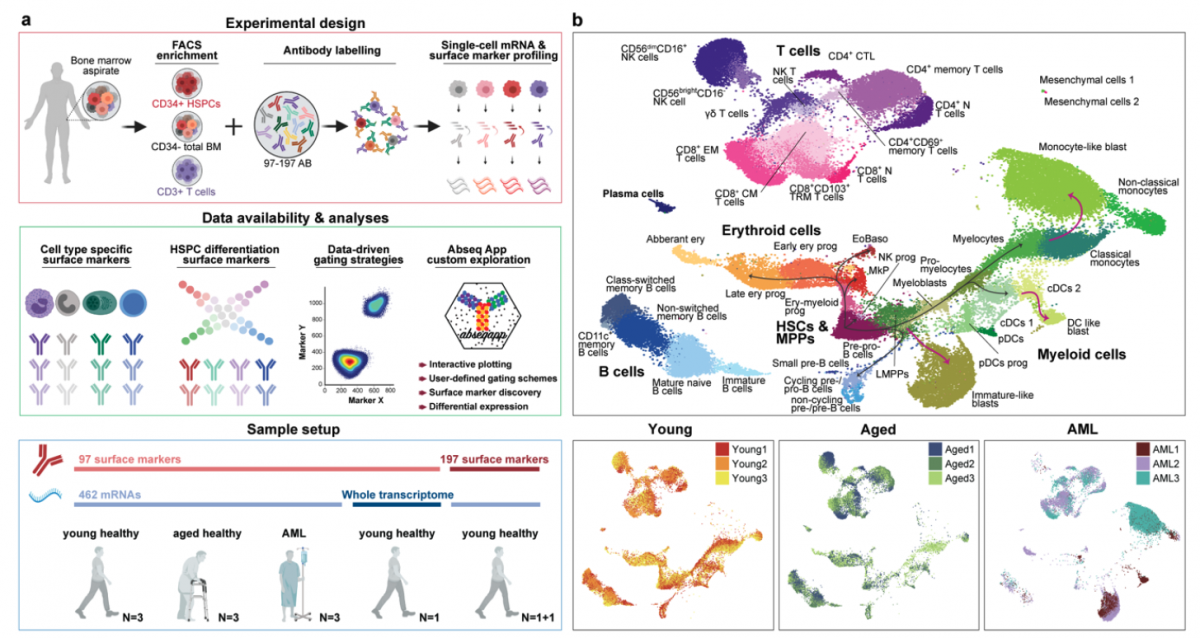
Together with the lab of Simon Haas, we have completed a detailed atlas of RNA + surface protein expression in healthy, aged and leukemic bone marrow. Reference: Triana et al., Nature Immunology 2021
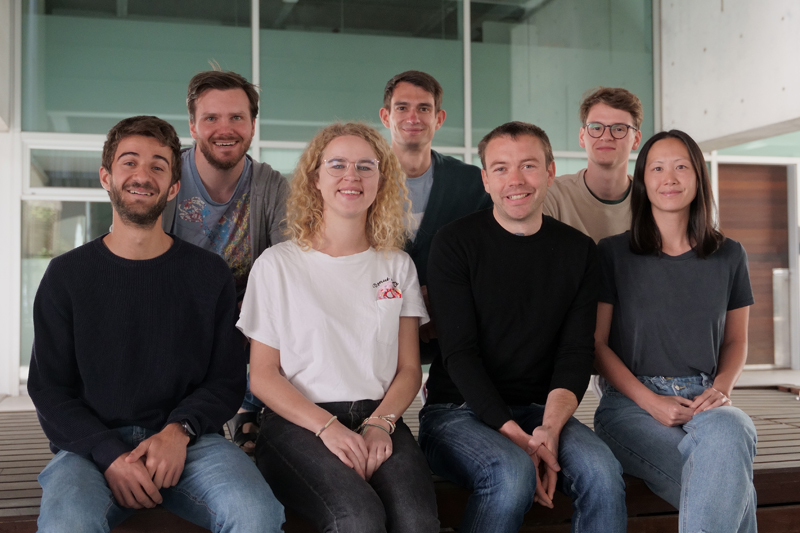
Group Leader
Postdoctoral Researchers
PhD Students
Postdoctoral Researchers
PhD Students
Datasets and resources
Reference: Velten et al., Nature Cell Biology 2017
See it in action at: https://indexplorer.shiny.embl.de
Reference: Velten et al., Nature Cell Biology 2017
Ranked best-in-class by Saelens et al., Nature Biotechnology 2019

